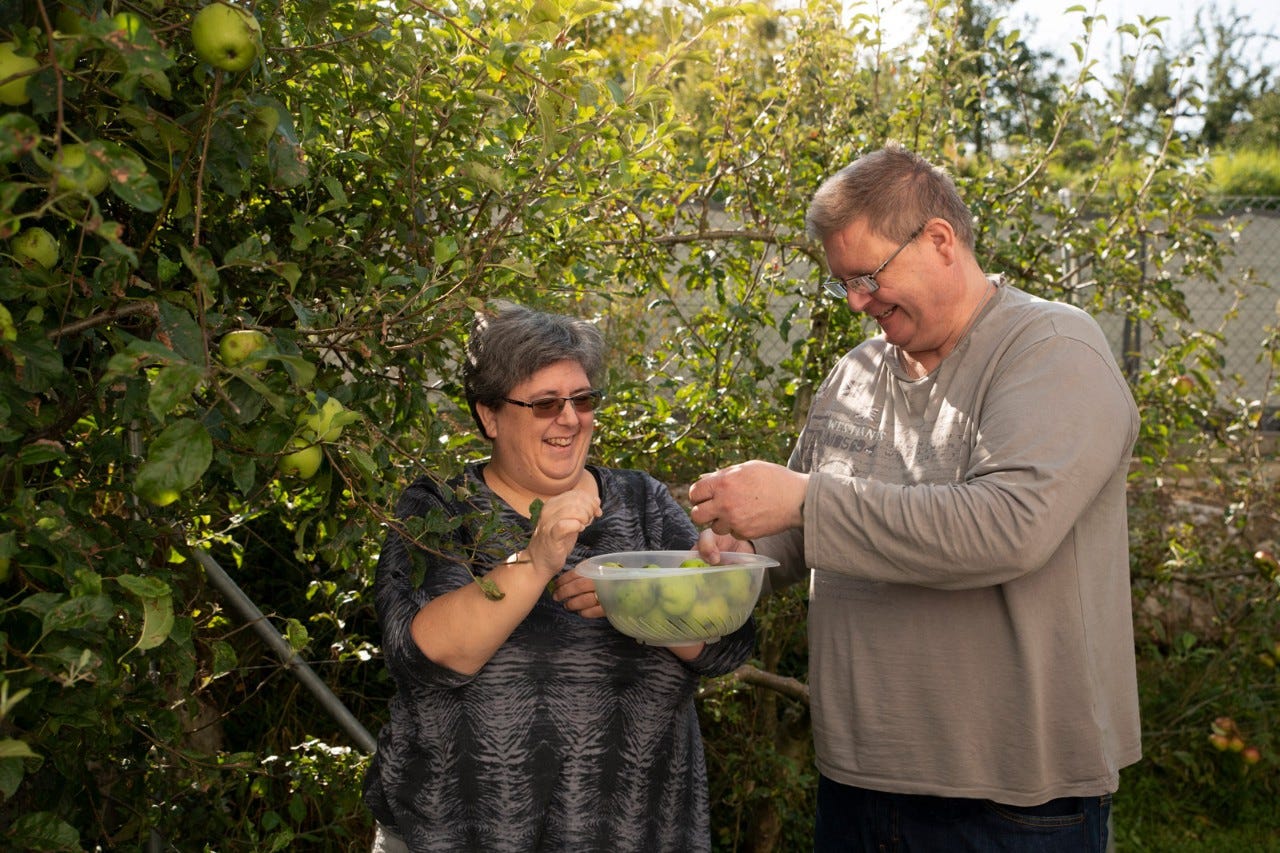Loneliness in old age: causes, consequences and helpful tips
One in three people over 65 feels lonely. This feeling often increases with age. What are the consequences of loneliness and what steps can lonely older people and their relatives take to combat it?

Suddenly it’s quiet. One minute you’re busy – shopping for groceries, folding laundry, cleaning the floor – and then, out of nowhere, you feel an emptiness. Nobody calls, nobody writes, nobody drops by. You look out onto a hectic world where everyone is out and about, making plans, meeting friends.
You feel weighed down, your thoughts begin to circle. Loneliness is a feeling that many of us know. Sometimes it only lasts for a few hours, sometimes for weeks or months. In Switzerland, every third person feels lonely, and this figure increases significantly in old age.
Risk factors: What causes loneliness to develop in old age?
“The feeling of loneliness arises when the type and quality of your relationships don’t match your own needs,” explains Corinne Hafner Wilson, Pro Senectute Switzerland’s specialist in charge of home help.
Consequently, even people with an active social environment can feel lonely if these relationships are not fulfilling. Nevertheless, social isolation massively increases the risk of feeling lonely.
“For many people, retirement leads to a sense of emptiness.”
In Switzerland, around 1.4 million people live in single-person households; this figure is expected to rise to 1.8 million by 2050. In addition, two out of five marriages end in divorce and the birth rate is falling. These demographic developments increase the risk of social isolation. Life-changing events such as retirement can also lead to loneliness. “Retirement triggers an emptiness in many people,” says Hafner Wilson.
The loss of a partner or close friends is even more stressful. “Health problems that cause you to withdraw from social life can also increase the likelihood of loneliness in old age,” adds Hafner Wilson.
Consequences: Loneliness can trigger physical ailments
Loneliness has far-reaching consequences for physical health. A comprehensive analysis of 150 studies by scientists from the US universities of Brigham Young and North Carolina has shown that chronic isolation increases the risk of mortality to the same degree as smoking or being severely overweight.
-
Loneliness promotes the production of cortisol
A key mechanism here is the activation of the body’s biological warning system. Researchers at the Swedish Karolinska Institute have discovered that loneliness increases the production of the stress hormone cortisol. Permanently elevated cortisol levels can lead to high blood pressure, heart attacks, strokes and an increased risk of dementia. It also weakens the body’s ability to fight inflammation, which impairs the immune system and increases susceptibility to infections.
-
Lonely people sleep worse
Another problem is the negative impact of loneliness on sleep. Researchers at the University of Chicago in the US have found that isolated people sleep significantly worse. They regenerate less, which not only causes them to age faster but also reduces their physical resilience. A lack of sleep also increases one’s sense of helplessness and makes it more difficult to establish new social contacts or start activities that could counteract loneliness.
-
Your own health takes a back seat
A lack of social connections also has a negative impact on your motivation to look after your own health. Isolated people exercise less, eat less healthily and are more likely to engage in risky behaviour, which can lead to further health problems.
-
Effects of loneliness on the psyche
The psychological effects of loneliness are just as serious as the physical effects. Numerous studies have proven the link between loneliness and depression. Those affected often fall into a vicious circle: they feel ashamed of their lack of social contact and withdraw even further. This withdrawal leads to increased suffering and intensifies the feeling of isolation.
What’s more, loneliness weakens our resilience – our ability to deal with crises or stressful situations. Studies show that people with few social contacts perceive stressful situations as more threatening. They don’t have positive experiences to draw on for relief. Instead, they develop avoidance strategies and pessimistic attitudes, which further impair their well-being.
What can you do to combat loneliness in old age?
Loneliness isn’t something you just have to accept – there are numerous steps you can take to counteract it. It often helps to remind yourself of activities or hobbies that you used to enjoy and to pick them up again. Contact with others, be it neighbours, family or those you meet by taking part in group activities, can also enrich everyday life
If you find it difficult to take the first step, professional counselling centres can be a valuable support. They provide help, concrete suggestions and opportunities to make new contacts. Digital channels, such as video calls or online meetings, also offer opportunities to stay in touch with others and make new contacts.
-
Tips for lonely older people
- Create a daily structure: A regular daily routine with fixed times for meals, activities and rest periods can help to give the day meaning and structure.
- Use technology: Modern means of communication, such as video calls or social media, make it possible to stay in touch with family and friends, even over long distances.
- Build neighbourhood networks: Chatting to neighbours can create new social contacts and strengthen your sense of community.
- Volunteering: Volunteering offers the opportunity to meet new people and make a meaningful contribution to society.
- Pets as companions: A pet can provide company and add a sense of responsibility and joy to everyday life.
-
Tips for relatives
- Listen attentively: Show understanding when someone around you withdraws or talks about loneliness. Listening attentively is often a great help.
- Enquire about interests: Enquire about the person’s interests or previous hobbies. Encourage them to take these up again, as this can help them to make new contacts and boost their enjoyment of life.
- Direct them towards professional help: Encourage the person concerned to seek professional help if you feel this is appropriate. Sometimes an external expert can help better than a close relative.
Services and support in combating loneliness in old age
Numerous organisations in Switzerland offer support to older people. Pro Senectute, the largest specialist and service organisation for senior citizens, offers advice and a wide range of events, activities and courses that bring older people together. These range from dance and language courses to walking groups and digital meeting places. The aim is both to help older people maintain independence and prevent loneliness.
The website einsamkeit-im-alter.ch (website only available in German) offers a wealth of information and practical tips for combating loneliness It puts older people in touch with volunteer projects, such as visiting and telephone partnerships, and provides support in teaching digital skills to facilitate access to online services.
If you’d like to get involved, you can find opportunities to actively spend time with senior citizens and thus create new connections in projects such as “Schenkzeit” (The gift of time) from the Gemeinsam im Alter Foundation (website available only in German). For detailed information, older people and their relatives can contact the relevant local advice centres or find out more online.




